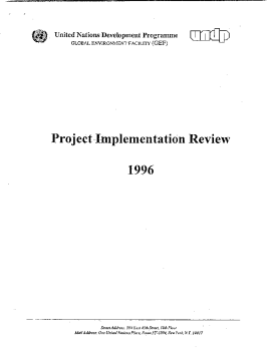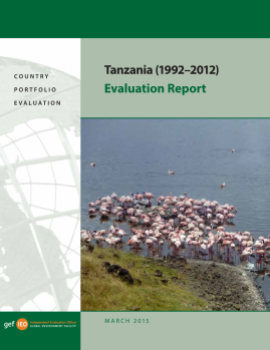The Project Performance Report (PPR) presents the results of the 1996 Project Implementation Review (PIR), a monitoring process based upon reporting by the GEF Implementing Agencies (IAs) on all projects being implemented for at least one year as of June 1996. The PIR covers 70 projects. This PPR also draws on information about the performance of GEF programs from evaluations and other studies.
As one of its key conclusions, the report finds that while education, institutional strengthening, capacity building and training are crucial to the incorporation of global environmental challenges into national development strategies, indicators for measuring human and institutional capacities urgently need to be developed in order to accurately evaluate the success of GEF programs working in these areas.
The report includes the following general conclusions and recommendations:
- There is an urgent need to develop indicators for measuring human and institutional capacities.
- Crucial issues to be taken into account during project design include: targets must be realistically achievable; not to underestimate the time or expense required; allocate adequate resources; identify and secure realistic counterpart contributions; identify cofinancing opportunities; establish clear responsibilities for implementation; identify several procurement channels and subcontractors; plan a smooth transfer of project management to government and civil society at project conclusion.
- Lessons learned from project implementation include: hold pre-implementation workshops to clarify roles and responsibilities; hold numerous workshops for local population; compile directory of relevant NGOs and experts and maintain and establish contact with them throughout; gain government commitment to address the project's focal area; build contingency plans in case of government instability; connect project to global community via site visits, information systems and knowledge sharing.

